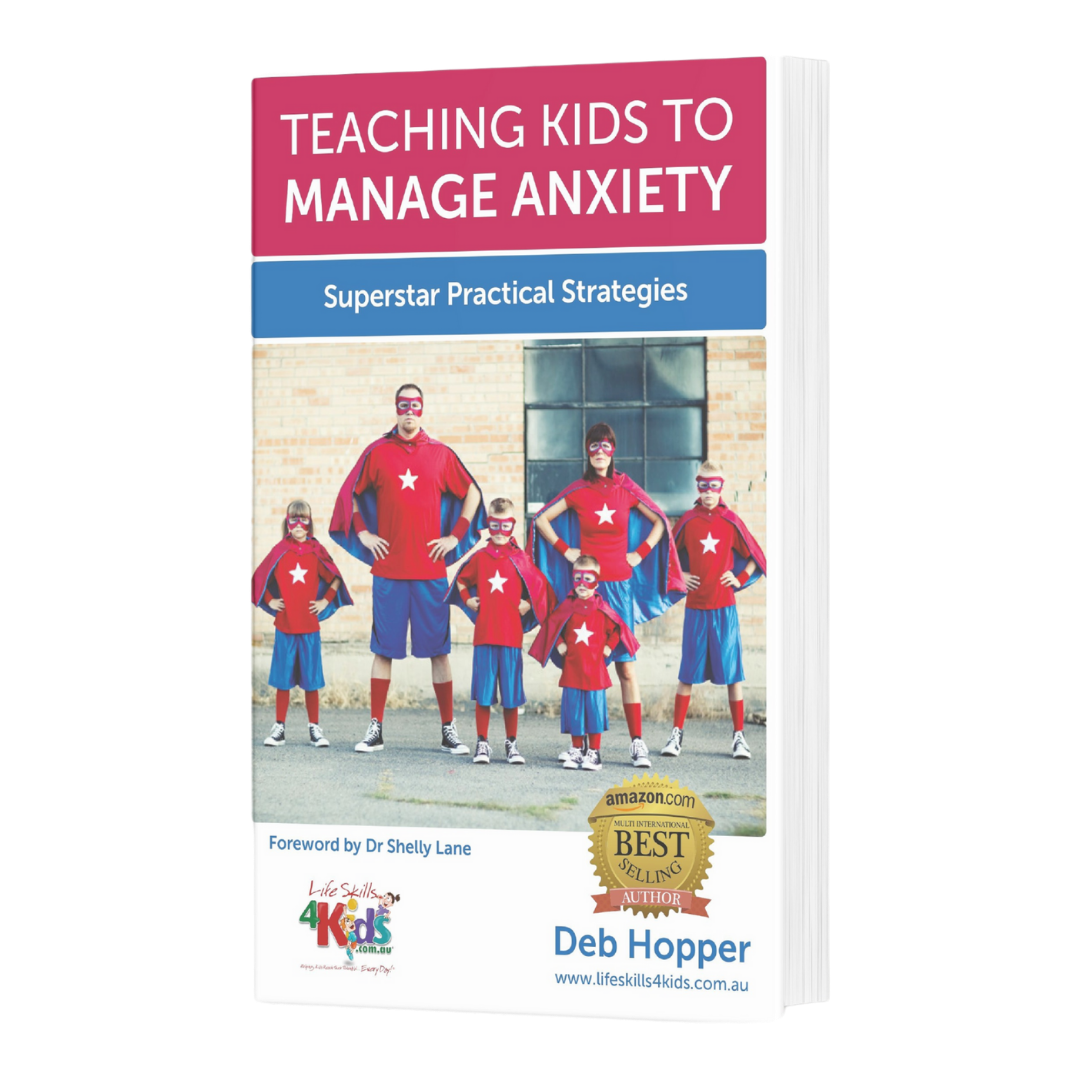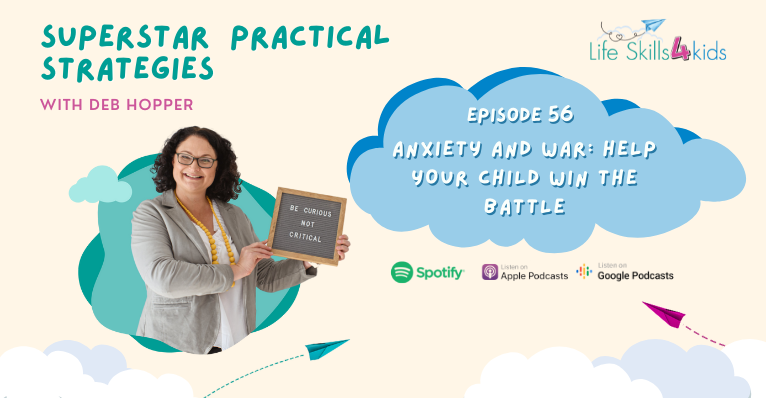Episode 56 of the Superstar Practical Strategies help parents cope with the anxiety that their child is having amid the news of war and conflict.
Unless you refuse to partake of any form of media, it’s impossible to miss mentions of the war in Ukraine. The TV is constantly bombarding us with images of the conflict, and we see people just like us being forced to flee with their children and pets into a very uncertain future.
Kids see it, too. And it can cause or escalate anxiety, especially for children who are already prone to worrying. This podcast helps parents and carers can take steps to minimize the harm and equip kids with the skills they need to cope.
It’s probably the most pressing issue facing the world today, but we don’t talk about it. How do you teach your child to be calm and confident, even in the middle of a war?
If you liked this podcast or have any suggestions for a future topic, you can let us know at help@lifeskills4kids.com.
For more updates, follow us on our social media channels. We are on Facebook, Twitter, Linkedin, and Instagram!
Teaching Kids to Manage Anxiety
Kids today are growing up in a fast-paced world where information and opportunity overload can be overwhelming.
Based on many years of clinical experience as an Occupational Therapist, Deb Hopper has been using her Just Right Kids® Model to teach children to communicate and manage their stress and anxiety by:
- Identifying their “body speed”,
- Understanding their stress triggers, and
- Implementing simple strategies to reduce anxiety and stress.
“This is quite simply the best, most comprehensive and practical bookI have ever read to help teach children – and many grownups – how to manage anxiety. It is written in an easy to read way with lots of fabulous graphics. This brilliant book needs to be in every home, every school and every library.” — Parenting author and educator Maggie Dent
Explore
- How the body reacts to anxiety and impacts on our ability to think and get an action plan together
- How to teach your children to identify when their body and mind is anxious, and how to tell you
- Sensory overload and how this can push children into being anxious
- Strategies to reduce screen time that you can start today (because this will help reduce anxiety in your house and make life more peaceful





